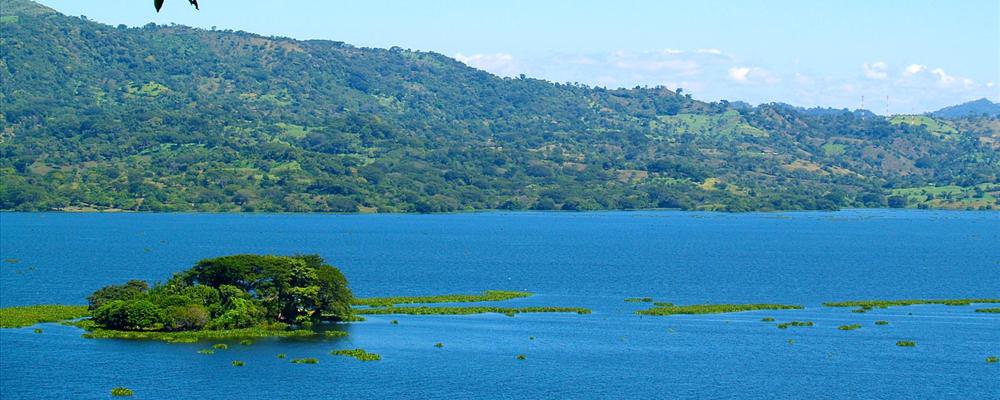
El Salvador
( 1 user review )El Salvador is a country in Central America and, geographically, is part of continental North America. It is bordered on the southwest by the Pacific Ocean, and lies between Guatemala and Honduras.
Understand
El Salvador covers an area of about 21,040 square kilometers (the smallest country in Central America), although it is the most densely populated. El Salvador is home to more than 6,500,000 people. It is divided into 14 sections called Departments. It has 25 volcanoes, 14 lakes, and four large cities. The capital is San Salvador. Its origin comes from the ancient civilization of the Pipils, who called the region Cuzcatlán (Land of precious things).
History
The civilization of El Salvador dates from the pre-Columbian time, around 1500 B.C., according to evidence provided by the ancient structures of Tazumal in Chalchuapa. The Spanish Admiral Andrés Niño lead an expedition to Central America and disembarked on the Island Meanguera, located in the Gulf of Fonseca, on May 31st, 1522. This was the first Salvadoran territory visited by the Spaniards. In June, 1524, Spanish Captain Pedro de Alvarado began a predatory war against the native tribes of Cuzcatlán. During 17 days of bloody battles many natives and Spaniards died. Pedro de Alvarado was defeated and, with an injury to his left hip, abandoned the fight and fled to Guatemala, appointing his brother, Gonzalo de Alvarado, to continue with the conquest of Cuzcatlán. Later, his cousin Diego de Alvarado established the Villa of San Salvador in April 1525. King Carlos I of Spain granted San Salvador the title of City in the year 1546. During the following years, El Salvador developed under Spanish rule. Towards the end of 1810, a feeling of a need for freedom arose among the people of Central America and the moment to break the chains of slavery arrived at dawn on November 5th, 1811, when the Salvadoran priest, Jose Matías Delgado, sounded the bells of the Iglesia La Merced in San Salvador, making a call for insurrection. After many internal fights, the Acta de Independencia (Act of Independence) of Central America was signed in Guatemala on September 15th, 1821.
In December of 1931, the corrupt and incompetent regime of the Labour Party, headed by Manuel Araujo, was overthrown and General Maximiliano Hernández Martínez assumed the presidency. The fraudulent elections of January 1932 were the detonating factor of the social outbreak. Several voting sites were suspended in populations in which the Communist Party had a strong presence. A new insurrection began. After two frustrated assaults on the Cuartel de Caballería (Cavalry Quarters) were conducted by the rebel forces, the government ordered martial law. Strict censorship of the press was implemented. In the following days thousands of farmers and workers, carrying machetes and some few "Mauser" rifles attacked police stations, municipal offices, telegraph stations, warehouses, and wealthy landowners' properties. This insurrection was crushed. On January 31st, Manuel Antonio Castañeda sentenced Farabundo Martí to death. He was shot and killed on February 1st, 1932.
Over the next decades, many coups d'états followed, including the one that overthrew General Maximiliano Hernández Martínez.
Relations with Honduras deteriorated in the late 1960s. There was a border clash in 1967, and a four-day so-called Football war (Soccer War), as it was named by the international mass media, broke out in July 1969. The war ended with a cease-fire prompted by pressure from the United States and the Organization of American States. The Salvadoran forces that had invaded Honduras were withdrawn. They were just a few kilometers outside Honduras' capital.
A movement of organized leftist guerrillas sprang up in 1974 and 1975, amid increasing political violence. In 1980, three of the leftist organizations united to coordinate a fight against the government. This movement was called FMLN (Frente Farabundo Martí para la Liberación Nacional. English: Farabundo Martí National Liberation Front). In March of the same year Monseñor Oscar Arnulfo Romero, the archbishop of San Salvador, was assassinated while he was celebrating mass. It is widely believed that the order for his execution came from Major Roberto D'Abuisson, the founder and leader of ARENA, a right-wing party. D'Abuisson is best known for his suspected involvement in death squad murders. He died of cancer in 1992. On January 16th, 1992, the government of El Salvador and the Farabundo Martí National Liberation Front (FMLN), signed Los Acuerdos de Paz (Peace Accords) in Chapultepec, Mexico, putting an end to one of the most painful chapters in the history of El Salvador. The 12 years of armed conflict claimed the lives of over 75,000 people and caused the exodus of hundreds of thousands more who fled to the United States, Canada, and other countries in order to escape the violence.
Today, El Salvador is stable and with a growing economy, leaving behind its painful history.
Climate
Tropical; rainy season (May to October); dry season (November to April); tropical on the coast; temperate in the uplands.
Holidays
| Date | English Name | Local Name | Remarks |
|---|---|---|---|
| March/April | Easter | Semana Santa | Celebrated with carnival-like events in different cities by the large Catholic population |
| May 1 | Labor Day | Día del Trabajo | International Labour Day |
| May 10 | Mother's Day | Día de la Madre | . |
| August 1–7 | August Carnival | Fiestas Agostinas | Week long festival in celebration of El Salvador del Mundo, patron saint of El Salvador. |
| September 15 | Independence Day | Día de independencia | Celebrates independence from Spain, achieved in 1821AD |
| October 12 | Columbus Day | Día de la Raza | This day commemorates the arrival of Europeans in the Americas |
| November 2 | Day of the Dead | Día de los Difuntos | A day on which people usually visit the graves of deceased loved ones. |
| November (final week) | San Miguel's Carnival | Carnaval de San Miguel | Week long carnival in San Miguel |
| December 25 | Christmas Day | Navidad | Salvadorans stay up on December 24th until 12AM to welcome Christmas with a huge "arsenal" of firecrackers |
| December 31 | New Year's | Año nuevo | Salvadorans stay up on December 31st until 12AM to welcome the New Year the same way as Christmas (You can hear the deafening sound of the firecrackers on both days all over the country). |
History
The civilization of El Salvador dates from the pre-Columbian time, around 1500 B.C., according to evidence provided by the ancient structures of Tazumal in Chalchuapa. The Spanish Admiral Andrés Niño lead an expedition to Central America and disembarked on the Island Meanguera, located in the Gulf of Fonseca, on May 31st, 1522. This was the first Salvadoran territory visited by the Spaniards. In June, 1524, Spanish Captain Pedro de Alvarado began a predatory war against the native tribes of Cuzcatlán. During 17 days of bloody battles many natives and Spaniards died. Pedro de Alvarado was defeated and, with an injury to his left hip, abandoned the fight and fled to Guatemala, appointing his brother, Gonzalo de Alvarado, to continue with the conquest of Cuzcatlán. Later, his cousin Diego de Alvarado established the Villa of San Salvador in April 1525. King Carlos I of Spain granted San Salvador the title of City in the year 1546. During the following years, El Salvador developed under Spanish rule. Towards the end of 1810, a feeling of a need for freedom arose among the people of Central America and the moment to break the chains of slavery arrived at dawn on November 5th, 1811, when the Salvadoran priest, Jose Matías Delgado, sounded the bells of the Iglesia La Merced in San Salvador, making a call for insurrection. After many internal fights, the Acta de Independencia (Act of Independence) of Central America was signed in Guatemala on September 15th, 1821.
In December of 1931, the corrupt and incompetent regime of the Labour Party, headed by Manuel Araujo, was overthrown and General Maximiliano Hernández Martínez assumed the presidency. The fraudulent elections of January 1932 were the detonating factor of the social outbreak. Several voting sites were suspended in populations in which the Communist Party had a strong presence. A new insurrection began. After two frustrated assaults on the Cuartel de Caballería (Cavalry Quarters) were conducted by the rebel forces, the government ordered martial law. Strict censorship of the press was implemented. In the following days thousands of farmers and workers, carrying machetes and some few "Mauser" rifles attacked police stations, municipal offices, telegraph stations, warehouses, and wealthy landowners' properties. This insurrection was crushed. On January 31st, Manuel Antonio Castañeda sentenced Farabundo Martí to death. He was shot and killed on February 1st, 1932.
Over the next decades, many coups d'états followed, including the one that overthrew General Maximiliano Hernández Martínez.
Relations with Honduras deteriorated in the late 1960s. There was a border clash in 1967, and a four-day so-called Football war (Soccer War), as it was named by the international mass media, broke out in July 1969. The war ended with a cease-fire prompted by pressure from the United States and the Organization of American States. The Salvadoran forces that had invaded Honduras were withdrawn. They were just a few kilometers outside Honduras' capital.
A movement of organized leftist guerrillas sprang up in 1974 and 1975, amid increasing political violence. In 1980, three of the leftist organizations united to coordinate a fight against the government. This movement was called FMLN (Frente Farabundo Martí para la Liberación Nacional. English: Farabundo Martí National Liberation Front). In March of the same year Monseñor Oscar Arnulfo Romero, the archbishop of San Salvador, was assassinated while he was celebrating mass. It is widely believed that the order for his execution came from Major Roberto D'Abuisson, the founder and leader of ARENA, a right-wing party. D'Abuisson is best known for his suspected involvement in death squad murders. He died of cancer in 1992. On January 16th, 1992, the government of El Salvador and the Farabundo Martí National Liberation Front (FMLN), signed Los Acuerdos de Paz (Peace Accords) in Chapultepec, Mexico, putting an end to one of the most painful chapters in the history of El Salvador. The 12 years of armed conflict claimed the lives of over 75,000 people and caused the exodus of hundreds of thousands more who fled to the United States, Canada, and other countries in order to escape the violence.
Today, El Salvador is stable and with a growing economy, leaving behind its painful history.
Climate
Tropical; rainy season (May to October); dry season (November to April); tropical on the coast; temperate in the uplands.
Cities
-
San Salvador - national capital; San Salvador department
-
Santa Tecla - El Salvador's second largest city
-
Acajutla
-
La Libertad - surf paradise
-
Santa Rosa de Lima, La Unión Department, market world
-
Puerto Cutuco
-
Puerto El Triunfo
-
Santa Ana
-
San Miguel, San Miguel department
-
Berlín, Usulután department
-
San Francisco Gotera, Morazán department
-
Suchitoto
Getting there
Visas
Immigration requires that visitors entering El Salvador have their passport and one of the following documents: visa or tourist card. Visas are issued by the Consulate of El Salvador accredited in the countries where these type of diplomatic missions exist; and the tourist card is generally issued for 90 days and can be purchased for US$10 at the port of entry. Passports of certain countries might need to obtain a visa before entering El Salvador. Visa for U.S. citizens is free. Some countries pay a fee for the issuance of the visa.
By plane
Visitors traveling by plane arrive at El Salvador International Airport in Comalapa, located forty-five minutes outside of the capital's city limits. The airport code is SAL.
TACA Airlines is the national airline of El Salvador. TACA acquired the national airlines of Costa Rica, Nicaragua, Honduras, and Guatemala so it also serves those countries. TACA flies a fleet of new A319s, A320s, and A321s throughout North, Central, and South America. However, Taca regularly has the highest ticket prices and savvy buyers would do well to compare options using an online service such as kayak.com.
A US$32 departure tax must be paid upon departure. Depending on the airline, the full amount or part of the tax may already be included in the price of your ticket and the amount you must pay will vary from US$0 - US$32.
By car
The Pan-American highway travels through El Salvador and is a safe route for entering the country.
By bus
Numerous buses also traverse the highways of the country. Domestic bus services are typically very cheap (not more than two or three dollars for even the longest rides) and difficult to understand. The buses themselves are often very well painted and adorned with all kinds of posters and trinkets, ranging from the religious to the pop-culture. Longer bus rides may include a stop in some town where plenty of mujeres, and sometimes their children, too, will board hawking mangos, nuts, water, and even sometimes fried chicken in a box. There is no central agency that coordinates bus routes and schedules, so it is best to just ask the cobrador where the bus is going and when. Most are very friendly and helpful, but do watch out for scams on the buses.
- Note! Anyone riding the buses (visitor or local) must take caution in riding the buses and microbuses that are seen around the country. The buses are often crammed and it is very easy to be robbed. The buses are cheap and are a great way to get around, but remember that as a visitor you are at a higher risk of being robbed. If you must ride a bus take extra care of yourself and your belongings.
The following bus companies offer luxury (and safer) bus travel between El Salvador and other Central American destinations:
-
Tica Bus : 2 terminals in San Salvador. Covers all Central American countries including Tapachula, Mexico. First Class option available on longer routes which include onboard meals and drinks.
-
Pullmantur : connects Guatemala - San Salvador - Tegucigalpa. Luxury Double Decker Coach Travel with First Class option available. Includes onboard meals and drinks.
-
Arsotur (arsotur@yahoo.com tel - (00 502) 5705 6393) Direct shuttle service from Antigua, Guatemala to El Roble Hostal, Playa San Diego and other beaches of El Salvador.
Traveling around
If driving, rental car agencies include Alamo and Hertz. Buses and taxis also provide good ways of getting around. Distances between sights make walking an unpopular option, as does the street layout in the city; San Salvador is not a square city, but has long avenues that are straight and streets that aren't. That said, in some areas walking is a great option, such as in Zona Rosa.
El Salvador now has a well developed GPS navigation system called QFind that can help you move around either in urban or rural areas. This is a fully functional system with thousands of points of interest and turn by turn routing to your destination.
Another option for luxury transportation is Linea Ejecutiva , they bring private transfer. If you want, you can contact the Bureau of Conventions of El Salvador to visit the country.
See
The countryside of El Salvador is breathtaking, with volcanoes and mountains offering "green" adventurers exactly what they are looking for. Many of environmentally-oriented community-based organizations promote eco-tourism, and there are a number of beautiful and secluded beaches and forests scattered throughout the country.
A well-maintained and practically deserted national park is found in the west at Bosque El Imposible. Additionally, there is Montecristo Cloud Forest, and a quaint fishing village with incredible local hospitality and remote coconut islands in La Isla de Méndez. Isla de Olomega in the department of San Miguel is an excellent eco-tourism destination, as are the beautiful Isla El Cajete in Sonsonate, Isla San Sebastian, Conchagua, Conchaguita, Isla Conejo, Isla Teopan, and Isla Meanguera.
One should also visit the colonial towns of Apaneca, Juayua, Panchimalco, and Suchitoto as well as the Mayan sites of San Andrés, Joya de Cerén (The Pompeii of Central America and an UNESCO World Heritage Site), and Tazumal, whose main pyramid rises some 75 feet into the air. The on-site museum showcases artifacts from the Pipil culture (the builders of Tazumal), as well as paintings that illustrate life in pre-Hispanic El Salvador. Souvenir hunters will find some of the best artisans in San Juan el Espino and in La Palma (the artisan capital of El Salvador).
The capital, San Salvador, is a cosmopolitan city with good restaurants highlighting the country’s fresh seafood, as well as plenty of shopping, entertainment and nightlife.
Things to do
El Salvador is gaining a reputation for having some of the best surfing in the world. Tourists from all over the world are discovering the surfing meccas of La Libertad (near San Salvador), El Sunzal, El Zonte and the wild El Este (the east), transforming El Salvador into the fastest growing surf tourism hot-spot in Central America.
Eat
The restaurant scene in El Salvador is influenced by many different cultures. Food options include Italian, Korean, Japanese, French, Chilean, American, Peruvian, Mexican, Spanish, Middle Eastern, German, Chinese, Argentinian and others. You can also easily find American fast food chains such as Burger King, McDonald's, Wendy's, KFC, Subway, Quiznos, Pizza Hut, Little Caesar's, and Domino's, in the largest cities in the country such as San Salvador, Merliot / Santa Tecla, and Santa Ana. Other franchises include Tony Romas', Bennigans and others. Some of the best restaurants are located in Zona Rosa (Paradise, Alo Nuestro, 503).
The typical Salvadoran diet includes lots of rice and beans, seafood (particularly among those who live on the coast), and the most common Salvadoran dish, the famous Pupusa, a round corn tortilla filled with cheese and other elements, usually chicharon (shredded pork meat). It's widely agreed that the best pupusas in the country can be bought in Olocuilta, which you can get to along the highway on the way to the Comalapa airport.
Also Salvadorans eat fried sliced plantains (platanos) usually with beans, sour cream, cheese and sometimes eggs, yuca con chicharron, pastelitos de carne, panes con pavo (turkey sandwiches), hand made tortillas among other very delicious Salvadoran foods.
Many large modern supermarkets are scattered throughout the capital and in large towns, such as La Despensa de Don Juan and Super Selectos, which sell local produce and a large variety of international products. Like anywhere else in the world, these are a cheaper alternative to eating out every night.
Drink
Typical Beverages and fruits
Try the most delicious Horchata (made from rice and "morro" seeds) and Cebada (a smooth and sweet pink barley refreshment). If you prefer (at your own risk) drink natural juices, such as: guava, jocote, arrayan, chirimoya, granadilla de "moco" and maran~on. Furthermore, you should try to savour the local fruit, as: jocotes, maran~on japon'es, green mango (with salt, lime, alhuaiste (ground pumpkin seed), manzana pedorra (orig.from Los Planes de Renderos), "nance", "red or yellow almendras" salvadorenias, "hicaco", "paterna" (also try the cooked paterna seed with lime and hot pepper, and don't miss the suave and liquory aroma of ''
Nightlife for the High Life
The trendiest night spot to visit is called La Zona Rosa. Some of the best hotels are located there, including the Sheraton Presidente as well as one of the most luxurious hotels in Central America, the Hilton Princess.
Although La Zona Rosa doesn't cover a large area (around 1sq mile), it's home to many exclusive, upscale bars and nightclubs (Code), and the best restaurants in town (Paradise, 503, A lo Nuestro). If you want to visit a nightclub without the probable inconvenience of not being let in, you should visit Las Terrazas (Stanza, Envy) at Multiplaza Mall or La Gran Vía (Llenya, El Alebrije), a life style center.
Sleep
City Hotels
-
Hilton Princess San Salvador, Av. Magnolias y Boulevard del Hipódromo, Ph: (503) 2268-4545, Fax: +503-2268 4500, . Located in the center of Zona Rosa, and offering quality comparable to the best Hilton Hotels found elsewhere in the world. Rooms from $109 per night. Wi-Fi in All Rooms
-
Radisson Plaza Hotel, 89 Avenida Norte y 11 Calle Poniente, Colonia Escalón, Ph: (503) 2257-0700, Fax: (503) 2257-0710, . Connected to the World Trade Center.
-
Sheraton Presidente, San Benito (in front of "El Chulón" (Monumento a la Revolución)monument), Avenida la Revolución, Zona Rosa, Ph: (503) 2283-4000, . Close to Teatro Presidente and Museo de Arte de El Salvador (MARTE).
-
Siesta Hotel & Casino, Boulevard Los Próceres, Ph: (503) 2283-0100, Fax: (503) 2283-0125, . 4-Star hotel with casino.
-
Holiday Inn, Urbanización y Boulevard Santa Elena. Located close to the American Embassy, Ph: (503) 2241-4000, Fax: (503) 2241-4070 or (503) 2241-4067. The hotel includes air conditioning, king size beds, double bed rooms, restaurant, bar, and many other amenities. 4-Stars.
-
Comfort Inn Real San Salvador, Tel: +503 2237 7000, Fax: +503 2237 7001, . Strategically located between business centers and residential areas in San Salvador - 5 minutes from the internationally known "Zona Rosa", where you can find a variety of international restaurants, bars, coffee shops, museums, and local monuments. 3 minutes' distance from the exclusive Galerias shopping mall and 5 minutes from Metrocentro, the largest mall in Central America.
-
La casa de Ivonne, Tel: +503 2277-4399. Located at 1 minute from Metro Centro, next to the Intercontinental hotel, this guest house is a good choice for anyone who wants to save on his lodging budget. Conveniently priced at $10,00/night and located in a safe area next to the bus stops to go to any area of the city. Rooms are limited, reservation is necesary. Staff speaks English, French and Spanish.
Beach Resorts
-
Royal Decameron Salinitas, Salinitas, Sonsonate. Ph: +503- 2209-3100, Fax: (503) 2263-0900, . Located at Playa Salinitas. It's an all-inclusive hotel and resort.
-
Pacific Paradise, Costa del Sol, La Paz. (503)2281-2028; Fax: (503)2281-2107, . Located at Costa del Sol. 45 minutes from San Salvador.
-
Tesoro Beach, Costa del Sol, La Paz. Office ph.: (503)22759393; Hotel ph.: (503)23380314, . Located at Costa del Sol. 45 minutes from San Salvador.
-
Casa de Mar Hotel & Villas, El Sunzal, La Libertad, Ph: (503) 2389-6284, (503) 2389-6281, (503) 2389-6020, (503) 2265-2080 . Offers guests direct beach front access to perfect waves. Each room overlooks the ocean, as do the swimming pool, bar and hilltop restaurant.
-
Hotel Miraflores, Playa Las Flores, El Cuco, San Miguel Ph: (503) 7890-4751 Incredible view over one of the best waves of El Salvador, Las Flores point break. Nice rooms with all the amenities needed, swimming pool, hammocks, board rental, massages, restaurant service, sundeck, boat trips and tours.
-
Hacienda Del Pueblo, La Cangrejera, La Libertad, US Phone: (626) 446-5362, . Hacienda del Pueblo is a surf/ecoresort. It is in beautiful, remote La Cangrejera.
-
Las Flores Surf Club, Located at "Wild East", El Cuco, San Miguel. Ph: USA Offices: (888) 899-8823 . Surfing resort with facilities and equipment that include a private beach access road, beachfront palapas with hammocks, beach shower, boat house with enclosed surfboard storage, restaurant, infinity pool, swim-up bar, massage table and canopy.
-
Las Hojas Resort, Playa Las Hojas, La Paz. Tel (503) 2325-7000, . Located 30 minutes from San Salvador, 10 minutes from Comalapa Intl. Airport. Offers Junior, Matrimonial, and Family suites.
-
Barillas Marina Club, Bahía de Jiquilisco. Phone: (503) 2632-1802 / (503) 2263-3650 / (503) 2263-3620, Fax: (503) 2263-3652, . At one hour thirty minutes of the capital, San Salvador, and at an hour of Comalapa International Airport. Barillas Marina Club is a private club for members only. Non-salvadoran tourists on a boat become automatic members of the club when they arrive.
-
Mizata Resort, Playa Mizata, km 86,5 en Litoral,La Libertad. Phone: (503) 7890-4751 Relax at one of the nicest sandy beaches of El Salvador, one of the hammocks with ocean view. Hotel with all amenities to have a tropical holiday just 50 min from the airport.
Eco Resorts
Colonial Hotels / Mountain Retreats
-
Los Almendros de San Lorenzo, Located at the colonial town of Suchitoto, Ph: (503) 2-335 1200, . Historical hotel with suites with air conditioning, gourmet restaurant & bar, tropical gardens & pool.
-
La Posada de Suchitlán, Located at the town of Suchitoto, Tel. (503) 2335-1064, Fax (503) 2335-1277, . Colonial - like hotel made of adobe and wood.
-
Santa Leticia, Mountain Retreat, located close to the towns of Apaneca, Juayúa, Ataco, Nahuizalco and Tacuba. Tel. (503) 2433.0357, (503) 2298.2986, (503)2298.2987. Fax. (503) 2224.5988, (503)2433.0351, . Offers mountain environment, restaurant, archaeological site, swimming pool and mountain biking.
-
Las Cabanas de Apaneca 1 hour from San Salvador. This boutique hotel in Apaneca is situated 1500mts above sea level, offering a cool year round climate, restaurant & a good base for exploring the town. Ph (503) 433-0500
-
Laguna Verde Guest House Have you ever spent the night at the border of a volcano crater?. The domo shaped house is located at the border of an ancient, deep, secondary crater with vertical walls, the "Cuajusto" extinct crater in Apaneca town (1 hour from San Salvador. From here you can catch some impressive panoramic views and do hikes to the nearby Laguna Verde, Black Forest and other natural beauties. Ph (503) 2262-0879,(503) 7859-2865,(503) 2260-2481. , mailto:gpssal@intercom.com.sv. Dormitory rooms from $7 to $10 per night.
Other
-
Quality Hotel Real Airport El Salvador , +503 2366 0000, Km 40.5 Carretera al Aeropuerto Internacional El Salvador, Quality Hotel Real Aeropuerto El Salvador is located 5 minutes from International Airport Camalapa, offers varied and modern rooms plus a bar, swimming pool, conference room and a restaurant serving American breakfast every morning completely free and offers regional cuisine and international lunch and dinner.
-
El Roble Hostal, (503) 7252 8498, Playa San Diego, Bus no. 80 from the port town of La Libertad, or phone for free pick-up, Backpackers refuge close to the beautiful, deserted beach of Playa San Diego and only 5 minutes from surfing at Punta Roca, 20 mins to Sunzal. The hostel has 2 dorm rooms and 2 private rooms, all with shared facilities. Meals provided or cook your own. Bar on site and tours available to explore the entire country. $7.oo pp dorm style acc.
Buy
El Salvador's official currency is the US Dollar (since 2001). Carry only $1, $5, $10 or $20 dollar bills. Most stores, supermarkets and department stores won't accept $50 or $100 bills. If you need to exchange to lower denominations, you can go to any bank.
El Salvador has the largest malls in the region (MetroCentro - MetroSur), especially in San Salvador, with many upmarket international stores. Goods can also be purchased from markets, including national and international supermarkets.
San Salvador has a number of large modern shopping malls stocking the latest in international fashion, accessories & cuisine. These are generally found in the city's upscale suburbs such as Escalón, Santa Elena, and their surroundings. These malls include:
For those shoppers interested in purchasing fairly traded crafts and organically grown produce, a local alternative market is held every other Saturday in the San José park in the San Luis area just west of the National University.
Expect to pay $30-60 for a room in a hotel, $3-5 for a simple meal, $0.25-0.35 to ride a San Salvador city bus, $1/hour to use the Internet, and $0.25 for a bag of sliced mangos. The one drawback to this is that large bills ($50 & $100) are almost unspendable. Get change wherever you can -- gas stations are always a good bet. A good idea is to visit a bank and ask for small bills and nothing larger than a $20. Take note of the prices that street vendors sell their products because at times they will take advantage of people that look or sound foreign by raising their prices dramatically.
Talk
The official language in El Salvador is Spanish. And some people in Izalco and other towns with a population of Indians speak Nahuat, the Pipil language. This is rarely seen because of the cultural impact to be called "indio". Most nahuat is spoken within a family household and not in public.
Etiquette
Salvadorans are known for their great hospitality. They are among the nicest people in the world. They are friendly, industrious people always willing to help anyone. That is what has earned El Salvador the nickname of "the country with a smile". When speaking with people you don't know, it is customary to address them in a formal manner, using señor, señora and/or usted.
Stay healthy
If you are not accustomed to food sold by street vendors, you might want to stay away from food sold on the streets until you acclimate. If you want to try a pupusa, you should try to find a restaurant to taste this popular dish rather than buying them from street vendors. That said, street food that you see cooked can sometimes be safer than restaurant food that you do not see cooked.
'Agua en bolsa' (water in a plastic bag) is very commonly sold in the streets and corner stores of El Salvador. Visitors should never drink 'agua en bolsa' nor tap water, period. Instead purchase sealed bottled water of a well-known brand. Likewise it's good to avoid food that has been washed with tap water such as lettuce or other vegetables sold on the street. Use common sense!
Pharmacies are easily found all over the country. Be sure to have a first-aid kit if you travel to the countryside and to archaeological sites. Mosquito repellent comes in handy.
Safety
El Salvador has a bad reputation due to the civil war of the 80s. The Consular sheet from the US State Department indicates that "El Salvador has one of the highest homicide rates in the world". Crime is an issue, most of it is attributed to street gangs, though statistics from official sources do not support that claim. You must use common sense and avoid entering into a zone that does not appear safe, just like you do in any country of the world. Avoid carrying fancy items such as such as jewelry, expensive cameras, and watches if you are walking on the public streets. Females should avoid traveling alone as they may catch the occasional cat-calling and perhaps get felt up on tightly packed buses. As a foreigner the kind of response you might get from the police is "hit or miss." If you have been pick-pocketed or otherwise robbed without harm to your person, a visit to the police station will almost certainly be an exercise in frustration. Police officers have also been known to harass or to be inappropriate to female travelers.
It is a good idea for any person visiting El Salvador to keep only necessary forms of identification, such as a driver's license, when exploring the city or tourist locales. If you must keep your passport on you at all times, a traveler's pouch would allow you to have it safely with you. Police officers routinely ask tourists to present their passports, most can be convinced that a copy of the passport and another form of id is sufficient. Others will insist on accompanying back to your hotel to retrieve your actual document. Most tourists prefer to stay within the safe areas of El Salvador such as La Zona Rosa where there is relatively no crime. In case you are not staying at one of the country's 5 star hotels, remember to ask if the city or town you are visiting has a high level of gang activity.
In 1996 San Salvador was considered the second most dangerous city in the Western Hemisphere, according to statistics. Since the end of the civil war in 1992 El Salvador has not seen a reduction in crime rates. Today San Salvador, and El Salvador in general, experience some of the highest homicide rates in the world, it is also considered an epicenter of the gang crisis, along with Guatemala and Honduras. The homicides reported in 2006 reached up to 3,906, in 2005 3,779 were reported; 57.2 violent deaths per every 100,000 people. Crime rates in general have been steadily growing throughout the years, from 2005-2006 crime rose 7.5%.El Salvador is the most dangerous and violent country in Central America. The government tried controlling the gangs with a tactic called "Super Mano Dura" which means "Super Strong Hand", however it has not been successful and crime rates have continued to rise.
Other Destinations
-
Sonsonate
-
Apaneca
-
Juayua
-
Panchimalco
-
Suchitoto
Learn
There are many private schools and universities, including numerous language schools.
Some of the best private schools are:
-
The American School (Escuela Americana). Calle y Colonia La Mascota ,ph:503 2257-8336
-
The British Academy (Academia Británica Cuscatleca). Infront of CA1 Santa Tecla.Ph:(503) 2241 4400
-
The Panamerican School (Escuela Panamericana). Colonia Escalón, ph:503 2209-6000
-
The International School of San Salvador (Colegio Internacional de San Salvador). Calle La Reforma 169 Ph 503 / 2224-1330
-
The German School (Escuela Alemana). Jardines de Guadalupe , ph: 503 22438120
-
The French School (Liceo Francés St Exupéry). Infront of CA1 Santa Tecla (Next to the British Academy)
-
Lamatepec (Just for male students). Carretera a Puerto de La Libertad, Ph (503) 2523-9400
-
La Floresta (Just for female students). Carretera a Puerto de La Libertad, ph:503 2229-5333
Work
Finding employment in El Salvador is difficult for both Salvadorans and extranjeros (foreigners) alike, although bilingual schools are constantly looking for English speakers, as well as other foreign language teachers. Bilingual schools offer competitive salaries for foreign teachers. For current vacancies see the schools websites (above). Most foreigners find themselves volunteering with one of a number of local community organizations or NGOs. The Centro de Intercambio y Solidaridad is often looking to hire bi-lingual project managers and liaisons, and offers both Spanish classes and numerous volunteer and cultural opportunities.
Another organization offering volunteer work in Santa Tecla and on the Islands in the south is Travel to Teach .
The recent incursion of the call center business has raised the bar in the need for a bi-lingual workforce.
The international country code for El Salvador is 503.
Contact & location
1 Review
Add your review
The photos displayed on this page are the property of one of the following authors:
Adal-Honduras, Reinante El Pintor de Fuego, Andrew Griffith, Adam Baker, Wilber Calderón - El Salvador, Jose Herrera, Alison McKellar
Some photos courtesy of:
 ,
,  . The photos provided by Flickr, Panoramio are under the copyright of their owners.
. The photos provided by Flickr, Panoramio are under the copyright of their owners.
This travel guide also includes text from Wikitravel articles, all available at  View full credits
View full credits
Ryan Holliday, Peter Fitzgerald, Nick Roux, Emerson Salmeron, John McNeil, David, Tao Weilundemo, Catherine Corry, Colin Jensen, Bill Johnson, Gerardo Rivera, devin mcmullin, Todd VerBeek, John, Evan Prodromou, Ian Kirk, Ricardo and Yann Forget, Elroblehostal, Lyndenc, Burmesedays, Inas, ChubbyWimbus, Rafcha, Tatatabot, Ypsilon, Lisadove, Texugo, Episteme, Nskinn, Lawikitejana, Abstraktn, Jimbo007, Guanaco152003, Jonboy, WindHorse, Huttite, Bukele, Mnd, InterLangBot and CIAWorldFactbook2002
This travel guide also includes text from Wikipedia articles, all available at  View full credits
View full credits
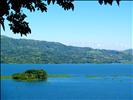


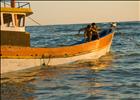
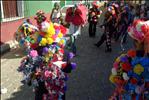

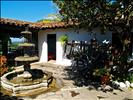
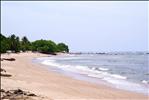
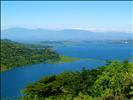



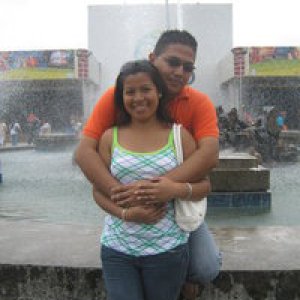

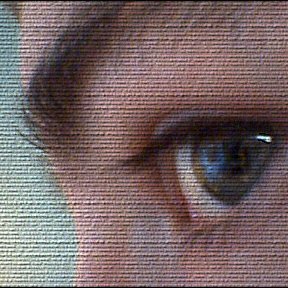
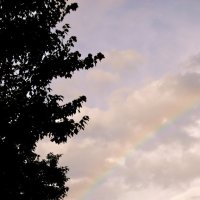

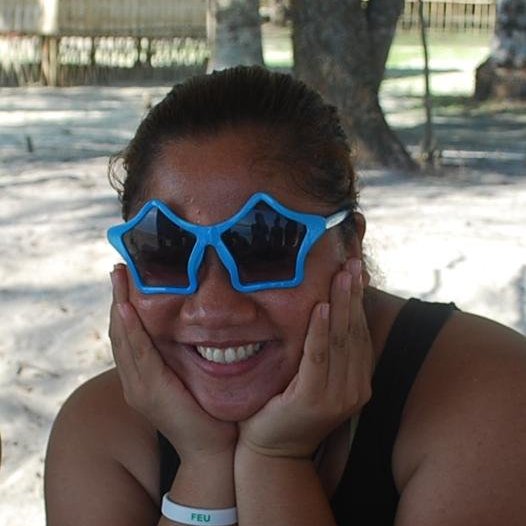


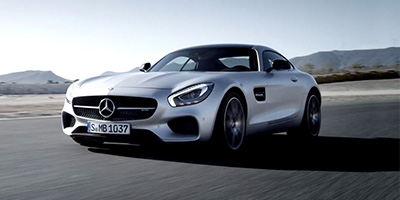



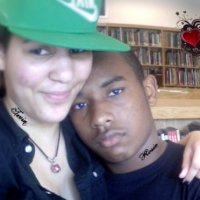




I liked
Very helpful and presents pretty much everything visitors need to know about the country.I disliked
Some of the information here is very outdated, it urgently needs an update. (For example, the club "Code" mentioned here no longer exists, and there's new hotels on the scene like the Marriot Courtyard, new things to see like the Parque Vicentenario, Furesa Wildlife Reserve and Torre Futura, as well as a whole new bunch of bars and restaurants at some of the most renowned surfing spots in the country like El Tunco, oh, and the Zona Rosa is no longer considered a "safe place" as it was stated many times here, just to mention some of them ...).